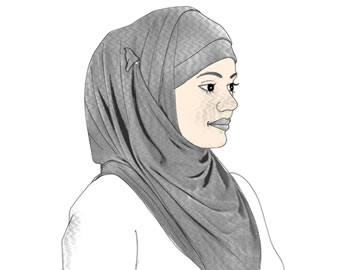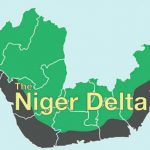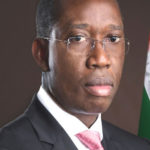The House had on Wednesday reportedly directed its Committee on Justice and Judiciary to look into the matter.
MURIC, in a statement by its director, Professor Ishaq Akintola, described the step by members of the lower chamber of the National Assembly as timely and capable of dousing tension over the issue.
“In particular, we doff our hat for the honourable member from Kano, Abubakar Danburam-Nuhu, who raised the historical motion accusing the Law School of infringing on Amasa’s fundamental rights.
“Nonetheless, we wish to call the attention of the Committee on Justice and Judiciary, which has been saddled with the task of unearthing the truth about this matter to the fact that AbdulSalaam Firdaus Amasa was not the only female Muslim law graduate whose Allah-given fundamental human right was violated on that day and at that event.
“All the female Muslim law graduates who wore hijab to the event were forced to remove their hijab but one of them, Aisha Zubair by name, was treated like an ordinary criminal and subjected to public disgrace. She suffered serious psychological trauma which still haunts her to date as a result of being forced to appear ‘half-nude’ in public.
“We must add here that an average female Muslim who is used to wearing hijab is naturally sensitive to being made to appear in public without it. It breaks them down emotionally,” MURIC said.
Meanwhile, MUSLIM groups in the country have criticised the decision of the Council of Legal Education to deny a University of Ilorin law graduate, Firdaus Amasa, call to a bar because she wore a hijab to the venue of the call to bar ceremony.
Amasa had been denied entry to the International Conference Centre, Abuja, venue of the ceremony, last week for refusing to remove her hijab.
The Muslim Media Practitioners of Nigeria (MMPN), Muslim Lawyers Association of Nigeria (MULAN), National Council of Muslim Youth Organisations (NACOMYO), Federation of Muslim Women’s Associations in Nigeria (FOMWAN), Muslim Students’ Society of Nigeria (MSSN), Abuja Muslim Forum (AMF) and Obafemi Awolowo University Muslim Graduates Association (UNIFEMGA) all described the action as unconstitutional and a violation of the lady’s fundamental human rights.
The action was also seen as distasteful by the Criterion, Muslim Consultative Forum (MCF), Muslim Ummah of South West of Nigeria (MUSWEN), Bodija Muslim Youth Forum (BOMYOF), Muslim Community of Oyo State (MUSCOYS) as well as individuals, non-Muslims alike.
In a statement, the National President of MMPN, Alhaji Abdur-Rahman Balogun said the refusal of the authorities of the Council of Legal Education to call Firdaus Amasa to the Nigerian Bar was a violation of her right to freedom of religion as provided for in the constitution.
In the same vein, the National President of MSSN, Mr Jameel Muhammad, described the restriction on the use of hijab as “Islamophobia” and vowed that the group would champion the cause of Miss Amasa.
The Ameer of the Abuja Muslim Forum, Malam Luqman Ahmad, in a statement, urged all stakeholders to abide by the direction given by the national executive of MULAN as it had opened consultations with the top echelon of the legal profession in Nigeria.
Reacting to the incident, NACOMYO, through its President, Alhaji Kamal’deen Akintunde, presumed that court verdicts on hijab cases in Osun and Lagos states were ample for the Council of Legal Education to “toe a line of reasoning” and apply wisdom rather than being sentimental in the current matter.
The group stated that the action of the Council of Legal Education amounted to perversion and rape of the constitution, “regrettably by those who are supposed to know better and protect it.”
The apex body for Muslim youth organisations said the development had again brought to the fore, the incidence of religious intolerance and persecution Muslims face in public establishments and called on the authorities to address the anomaly once and for all.
According to NACOMYO, seeing Amasa’s appearance on the day of the ceremony (as shown in a picture) shows that she had only wanted to maintain her usual appearance, even in the Law School, rather than camouflage.
“The argument that it is unconventional and unseemly to don hijab with wig should not surface because the law does not specifically stipulate against it,” the group said.
The National Amirah of FOMWAN, Hajia Halima Jibril, said the Muslim Ummah in the country would ensure that Amasa’s study of the law profession is not in vain.
The FOMWAN Amirah said the incident called the Ummah to action to seek redress and ensure adherence to the rule of law.
Jibril, who met with Firdaus in company with the leadership of MULAN, said: “injustice done to one is injustice done to all.”
She, however, appealed to the Nigerian Body of Benchers to re-appraise the case with a view to ensuring a fair settlement and giving Nigerians confidence that their right to practise their religion would be protected by those expected to uphold these rights.
Other Muslim groups also described the development as an abuse of fundamental human right and threatened to challenge it in court if the “injustice” is not redressed during the next call to bar ceremony.






